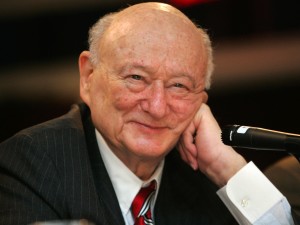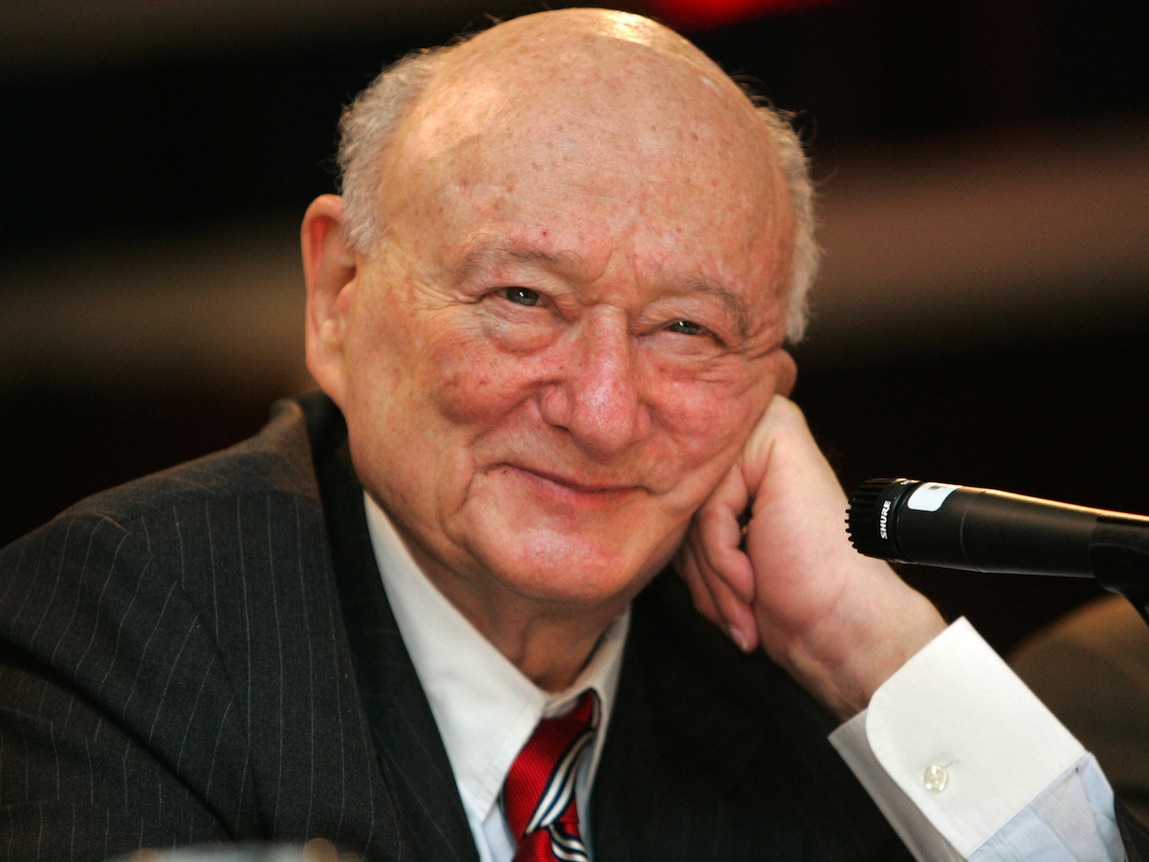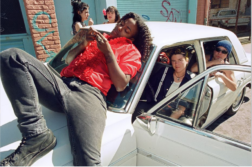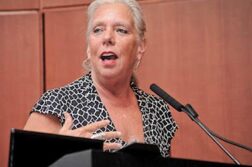IT WAS certainly intriguing to read the obituaries of Ed Koch, the famous former mayor of New York, who passed away at 88 on February 1. Most mainstream papers were coy about a fact that almost everyone knew—that Koch was gay—while some noted that he had remained a bachelor his whole life and had no children. Reading lines like that always makes me think about how far we haven’t come since the ‘70s.
To many, Koch was a colorful politician who often straddled the line between right and left as he forged his own path, pulling New York away from the brink of bankruptcy during his time as mayor (1978–89), but taking the city to a place of greater class divisions. For gay activists—and especially AIDS activists—Koch is now being incinerated in his own special place in hell for not doing enough during the early onslaught of the epidemic. That some would see this as a major flaw while others only a mere footnote drives home just how differently people see the AIDS crisis to this day. The New York Times ran a 5,000-word obituary in which his track record on HIV/AIDS was barely mentioned. After an intense wave of on-line criticism, they were forced to amend the piece, adding several paragraphs about his administration’s response to AIDS and the denunciation of it then and now.
 What was odd about Koch was the way in which his staunch dismissals of any questions surrounding his sexual orientation became as famous as his other foibles. Two years ago, I briefly entertained the fantasy that Koch might be willing to let me in on his secret. It’s not quite as hallucinogenic as it might sound: consider that in the previous year, Koch had appeared in two brilliant gay-themed documentaries, Stonewall Uprising, about the pivotal riots many regard as the beginning of contemporary queer liberation, and Making the Boys, about the phenomenal success and ongoing impact of Mart Crowley’s play (and subsequent film) The Boys in the Band. Were appearances in these films Koch’s indication of a new openness?
What was odd about Koch was the way in which his staunch dismissals of any questions surrounding his sexual orientation became as famous as his other foibles. Two years ago, I briefly entertained the fantasy that Koch might be willing to let me in on his secret. It’s not quite as hallucinogenic as it might sound: consider that in the previous year, Koch had appeared in two brilliant gay-themed documentaries, Stonewall Uprising, about the pivotal riots many regard as the beginning of contemporary queer liberation, and Making the Boys, about the phenomenal success and ongoing impact of Mart Crowley’s play (and subsequent film) The Boys in the Band. Were appearances in these films Koch’s indication of a new openness?
Getting the interview proved strangely easy. I just Googled Koch’s name and clicked on the first link that popped up. Within about two hours I heard back from an assistant and we arranged a time for me to meet with him in his swank high-rise office. After asking him about two non-gay issues, I brought up the documentaries and his appearance in them. Our exchange went like this:
Matthew Hays: It seemed like perhaps you were moving towards talking about something you hadn’t discussed before.
Ed Koch: Like what? Speak up!
MH: Like about being gay.
EK: My position about speaking about sexual orientation is that it’s a private matter. There always seem to be people who are interested in my sexual orientation. I suppose I should be complimented because I’m 87 years of age. But I think it’s a private matter for people to decide if they want to discuss their heterosexuality or homosexuality, I don’t discuss it.
MH: But you seemed to be willing to discuss it through appearances in these films.
EK: No, I don’t think so at all. I have been very supportive of gay rights in the past, if you’ll look at my record. I’ve been supportive of the rights of blacks too, and of course Jews and Catholics. … I went down to Mississippi in 1964 to defend young blacks who were registering to vote, as they were getting arrested. I volunteered as one of the lawyers to go down there. It was quite dangerous. It was one of the proud moments of my life.
MH: But billions of people know who you are. If you came out it would have tremendous impact.
EK: I don’t discuss my sexuality. I don’t intend to discuss it with you. I’m asking you the question: would you agree that every politician be asked the question, “Are you gay?” Answer the question! Yes or no?!
MH: That would depend on the context.
EK: In other words, you don’t want to answer the question. I get questionnaires all the time, but when I was running, that one didn’t exist. If we pursued your view of life, that’s not an illegitimate question. Next question!
MH: Did you ever see The Normal Heart?
EK: Never seen it, but I’ve read it. It’s a wonderful play, but it’s one that I believe is unfair to me. … I think Larry Kramer felt guilty because he warned people not to have promiscuous sex, but they did anyway. So he’s seeking to lay guilt off. I have no feeling of having failed in my responsibilities. We did more than any other city. What other questions do you have?
I asked Koch about his support for George W. Bush. He indicated that the Republican president’s foreign policies trumped everything he disagreed with, and then our interview came to a close. Knowing he was a film buff and occasional film critic, I brought him a copy of my book of interviews with gay and lesbian filmmakers, The View from Here. I signed it and handed it over to him, intrigued to see how he’d react to the cover image of Divine from Pink Flamingos. He thanked me and smiled, saying something about liking Divine. I never would have pegged him as a John Waters fan.
It may have seemed an odd thing to do, trying to get Koch to say those words after the litany of denials and dismissals he had made on the subject. It was clear he still found the questions abrasive, and it felt odd to rub up against someone so famous and so averse to confiding something that everyone already knew.
Matthew Hays, co-editor of the “Queer Film Classics” book series, teaches courses in film studies at Concordia University, Montréal.





